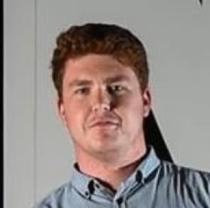NRL makes groundbreaking call on concussions amid spate of head knocks
The brutal concussion sustained by Kalyn Ponga has spurred the NRL to introduce a mandatory stand-down period for players.
The NRL has announced a major change to its concussion protocols in a bid to reduce the risk of brain injuries for players, bringing the league in line with World Rugby rules. The moves comes as the AFL faces down a class action lawsuit from more than 60 former players alleging the rival code failed in its duty to protect their long-term health.
Under the new protocols, players who are diagnosed with a concussion will enter a mandatory 11-day stand down period, which will see them miss up to two matches to recover from any head knocks properly. The stand-down period has been introduced with success overseas in the 15-man game, earning a seal of approval from Manly Sea Eagles coach Anthony Seibold, who is familiar with the protocols thanks to his time spent coaching for England Rugby.
WOW: Sheens' 'concerning' move as Tigers blasted over 'unacceptable' fail
SPEAKING OUT: Billy Slater responds to calls about Craig Bellamy
The new changes will come into effect immediately, and were brought on in part due to the alarming concussion sustained by Newcastle's Kalyn Ponga last weekend. It is the biggest change to the NRL's concussion protocol since head injury assessments (HIA) were introduced in 2014.
Ponga's future is uncertain, with the latest blow his fourth concussion in just 10 months. In addition to Seibold, the changes also had the support of Wests Tigers second-rower Shaun Blore. He sat out the Tigers' loss to Newcastle last weekend after sustaining a concussion of his own back in round one.
"It was weird. I felt pretty funny. I didn't quite feel 100 per cent," Blore said. "They're pretty nasty things and careers can end pretty early.
"I would be sweet with that move. They are nasty and one of my favourite players Boyd Cordner had to end his career early with a head knock."
Seibold said he had 'no qualms' with the system having experienced it through World Rugby. He said the ongoing priority had to be ensuring players were not unduly affected by injuries sustained in their careers.
Some exemptions are likely to remain available depending on the type of diagnosis, with doctors from outside the club to make judgments on less-serious knocks. The NRL already categorises head knocks during matches based on initial symptoms, with a category one the most serious and category twos requiring an off-field assessment.
NRL introduces major concussion change
The move also comes amid the contentious introduction of an independent doctor to monitor and require HIAs during each game, studying a multitude of TV angles for signs of concussion and can boasting the ability to inform the on-field referee from the Bunker whether to halt play and send a player off for an HIA.
The system, which was introduced last year, allows club doctors to tend to injured players while ensuring that no potential concussions go unsighted. The NRL says part of the reason independent doctors were introduced is because clubs regularly complained about their rivals exploiting the rules by keeping potentially injured players on the field.
The system attracted significant scrutiny from the likes of Phil Gould and Paul Gallen after round one, which featured a number of contentious calls from the independent doctor. Ponga was ordered to remain off the ground, much to the Knights' chagrin, while Raiders coach Ricky Stuart and Dolphins coach Wayne Bennett also raised concerns.
Canberra fullback Sebastian Kris and Canterbury winger Jacob Kiraz also appeared unhappy when asked to leave the field in the opening round. Gould said the concussion conversation had become 'confusing' for players, before later describing the system as an 'abomination'.
Roosters five-eighth Luke Keary however, one of the most concussion-prone players in the game, said he totally disagrees with the criticism and says his peers also privately appreciate having the independent doctor watching over them. Keary said on Tuesday: "It's definitely the way to go. It takes it away from clubs.
"There's a designated doctor sitting there just watching that. As much as it's frustrating sometimes if they might have got it wrong, as a player we appreciate it. Even if we don't all say it, we all appreciate it that someone is actually sitting there looking out for us.
"It's hard sometimes. Some of them are very hard to judge. They're going to get some wrong. But our docs are in the dressing rooms with people doing the concussion protocols to get back on, they're looking at other stuff and there's a lot of things going on at the actual ground so it's good.
"Even to spot one, a trainer's got to spot one. It's very hard to do in the game. So having someone external away watching it, it's the right way to go."
Sign up to our newsletter and score the biggest sport stories of the week.

